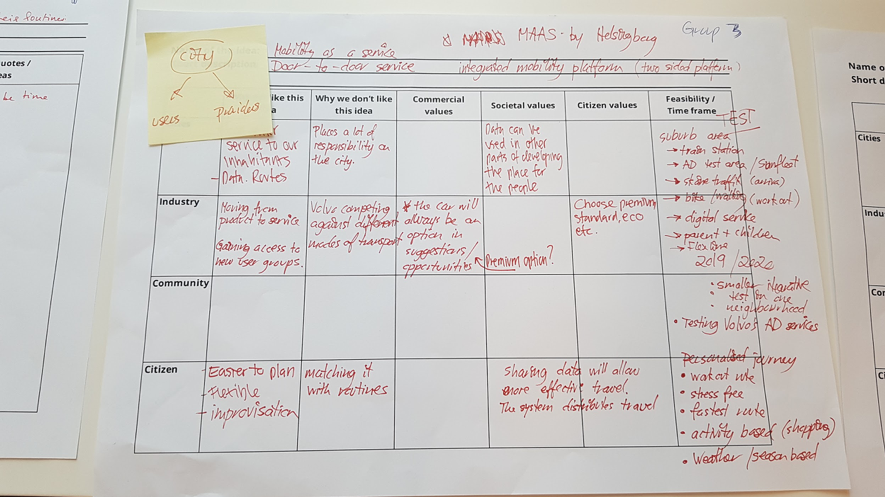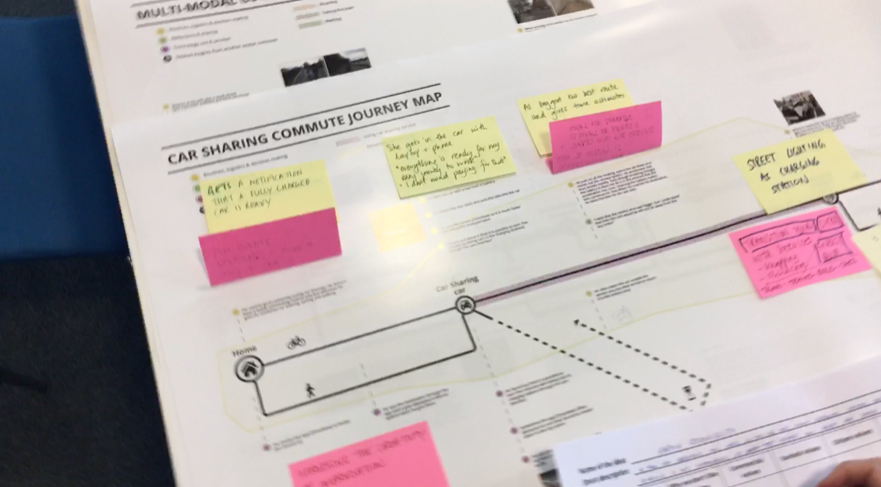Insights workshop was led by the Ethnographic research team and was designed to put people at the centre of the discussions between the different stakeholders. In the first stage participants were presented with talks about the ethnographic work and viewed video clips of specific examples of two people’s commutes. These were presented from the perspective of daily routines, in order to emphasise that these experiences are embedded in everyday life. This was shown as a ‘commute journey map’. Workshop participants then worked in mixed stakeholder groups to identify points of interest (POI) relating to mobility solutions in the routine maps. Through this process, the different perspectives of the different stakeholders came to the surface and also created the starting point for the next stage, which focused on creating possible innovations for commuting. Participants completed tables in which they wrote the perspectives of the different stakeholders alongside each other, while also uniting them in relation to their commercial and societal values, interest for other stakeholders, and feasibility.
Subsequently, the main exercise of the workshop was to learn how to create mobility solutions together, under the following two conditions: a) all stakeholders were needed to develop the solution, and b) the solutions should address actual real-life situations based in ethnographic insights and materials.

Map of different stakeholder perspectives in creating a joint mobility technology. Photograph by Thomas Lindgren

The groups collaborated to develop future mobilities scenarios. Video still by Kaspar Raats.
The video clips reveal the outcomes of the work of each group’s collaborative work. While each example represents a possible future mobility solution, the point of the exercise was not to create finished solutions, but to develop a methodology through which stakeholders with different perspectives and ambitions could work together towards solutions.

